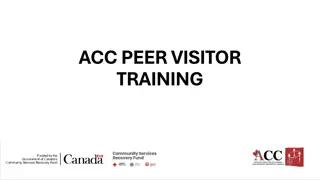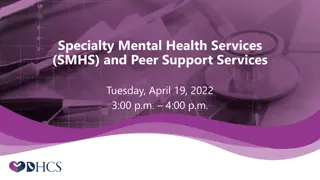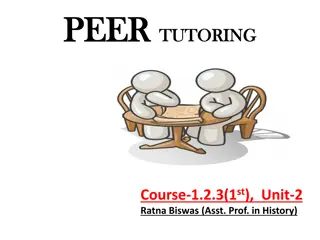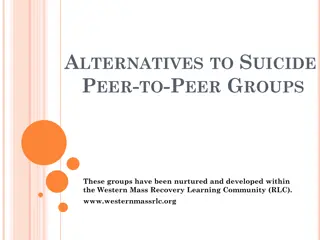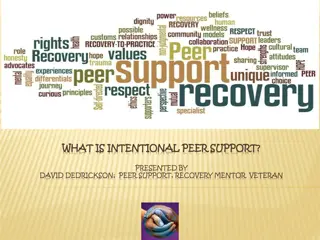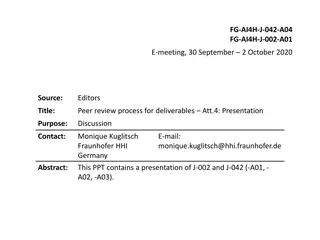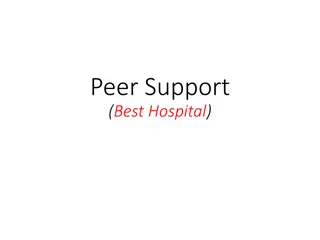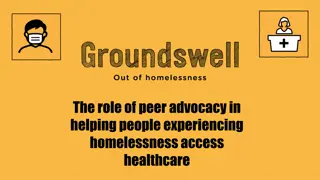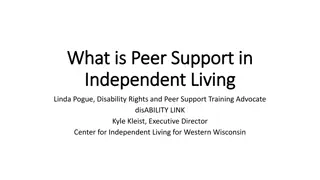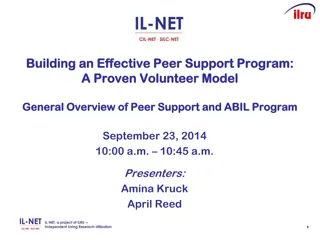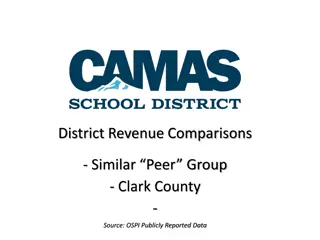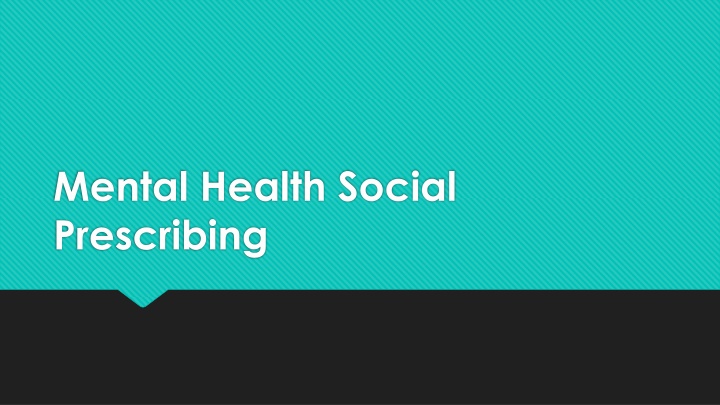
Supporting Mental Health through Social Prescribing
Empowering patients with common mental health conditions such as schizophrenia, depression, and anxiety through holistic support, communication strategies, and access to various services like Mind and Samaritans for a comprehensive approach to well-being.
Download Presentation

Please find below an Image/Link to download the presentation.
The content on the website is provided AS IS for your information and personal use only. It may not be sold, licensed, or shared on other websites without obtaining consent from the author. If you encounter any issues during the download, it is possible that the publisher has removed the file from their server.
You are allowed to download the files provided on this website for personal or commercial use, subject to the condition that they are used lawfully. All files are the property of their respective owners.
The content on the website is provided AS IS for your information and personal use only. It may not be sold, licensed, or shared on other websites without obtaining consent from the author.
E N D
Presentation Transcript
Mental Health Social Prescribing
How we support patients Common MH conditions: Schizophrenia, Schizoaffective disorder, Personality Disorders, PTSD, Depression, Anxiety Challenges: Low mood, chronic suicidal thoughts, Audio hallucinations, side effects from medications e.g. fatigue, low income, social anxiety/isolation, chronic pain and illness. MHSP s support holistically taking into account whole person, not focusing on diagnosis. What matters to you approach. Predominantly social needs and strengthening links to community but can support with practical issues. Examples of support Managed referrals to activities following up referral attending first session if needed following up to support future attendance - Managed referrals to housing support, benefit support, food banks, further education, psychological support in the community Liaising with other professionals involved in care when necessary Most importantly empowering patients to manage their conditions and build support network ? ? ? ? ? ? ? ?
Communication Patient led their preferred communication is prioritised, if socially isolated face to face is suggested (they are always given the option). ? Tone matching - the practice of adjusting your tone when responding to someone to acknowledge their feelings and show that you re here to help ? Active listening not filling all silences, encouragement through non verbal cues, body language, affirming language ?
Services Refer to services with flexible/drop in activities ? Refer to services like Mind who have knowledge around mental health difficulties ? Raise awareness of services like Samaritans text, phone, face to face support non NHS MH services ? Hearingvoices.org ?


